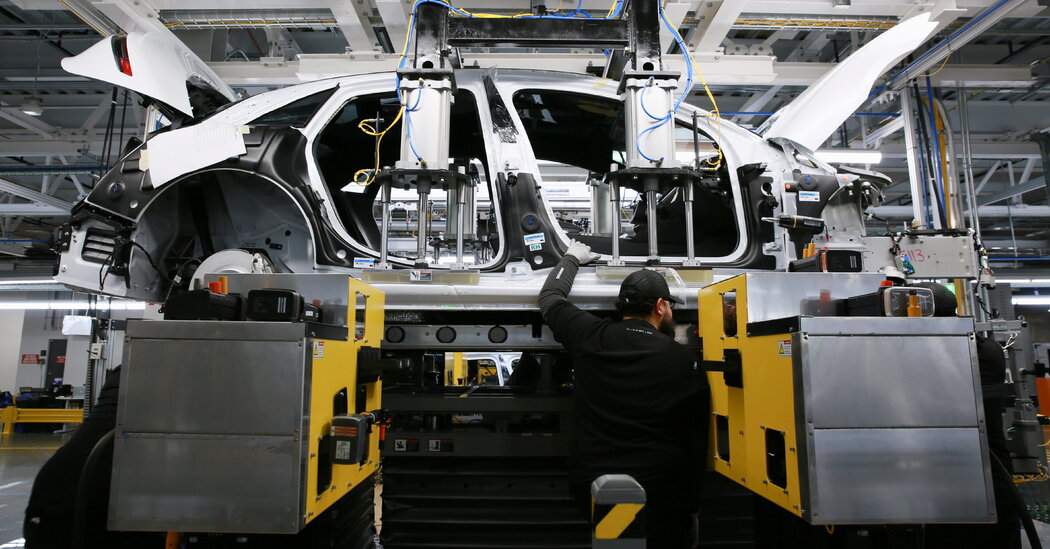Lucid Motors Will Produce Fewer Cars Than Expected


Lucid Motors, a fledgling maker of electric cars, on Monday significantly scaled back its production goals for the year, citing supply chain problems.
The company disclosed the new targets as part of its 2021 earnings report and will most likely disappoint investors who had seen the company as a serious challenger to Tesla. Lucid shares fell in after-hours trading.
Lucid said it expected to produce 12,000 to 14,000 vehicles this year at its factory in Arizona, down from the 20,000 that its chief executive, Peter Rawlinson, a former Tesla engineer, set as a goal last November.
Lucid said that 25,000 customers had placed reservations for its cars, which would translate into $2.4 billion in sales. So far the company has delivered about 300 vehicles.
The company reported a loss of $1 billion for the three months through December, compared with a loss of $311 million a year earlier. Sales were $26.4 million, compared with $3.6 million in the fourth quarter of 2020. Lucid said it had $6.2 billion in cash at the end of 2021, and also announced plans to build a second factory, in Saudi Arabia. The oil kingdom’s sovereign wealth fund is one of the largest investors in Lucid.
“We remain confident in our ability to capture the tremendous opportunities ahead given our technology leadership and strong demand for our cars,” Mr. Rawlinson said in a statement.
Lucid’s first car, the $169,000 Lucid Air Dream Edition sedan, won praise for its workmanship and the ability to travel a record 520 miles on a single charge. MotorTrend magazine declared it the car of the year. The company’s stock surged last fall as stock market investors became increasingly enthusiastic about the prospects for electric cars.
But the shares have slumped since peaking in November as investors waited to see if Lucid could make vehicles in large numbers and become a serious challenger to Tesla, which nearly doubled its global sales in 2021.
“It’s been our decision not to compromise quality for quantity,” Mr. Rawlinson said in an interview on Monday evening, adding that he was “more bullish than ever” about the company’s ability to offer more affordable vehicles and an S.U.V.
He said the supply problems were related to relatively low-tech products like exterior trim rather than the semiconductor shortages that have plagued other carmakers.
The leap from prototype to mass production has been difficult for other start-ups, too. Shares of Rivian, a maker of electric pickup trucks that also received rave reviews, have plummeted after the company failed to to meet a modest goal of producing 1,200 vehicles for individual buyers in 2021.





